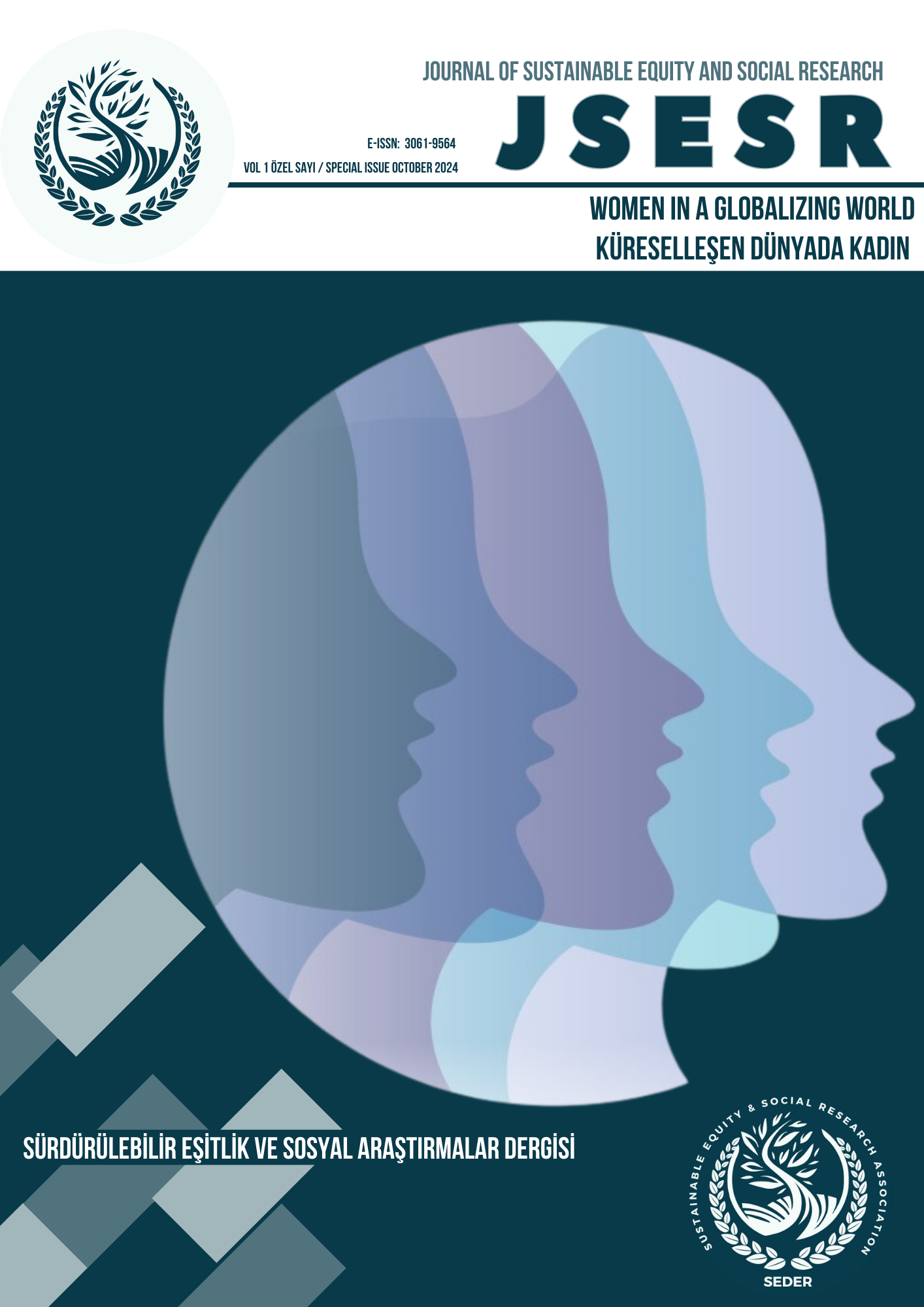An Ethical Appraisal of Women and Bridewealth in African philosophy
DOI:
https://doi.org/10.5281/zenodo.13910498Anahtar Kelimeler:
bridewealth, consequentialism , deontologism, virtue ethicsÖzet
In a typical African culture, bridewealth is an obligation that must be fulfilled by the betrothed male to the family of the bride. Bridewealth is the compensation to the wife’s family for the loss of her domestic and agricultural labour (the daughter), and it formalizes the transfer of reproductive rights to the husband’s family (Chae et al., 2021). It appears that there is a reciprocal benefit for the two families, however, it has been found that the payment of bridewealth is a cause of domestic violence and reproductive constraints. In the ensuing discussion, we argue that while in the African culture, the wife has to fulfill various duties to the husband, the adverse effects of bridewealth payment must not be overlooked. This paper makes an ethical appraisal of the bridewealth in Ghana by examining it through the lense of various normative ethical theories. It discusses the moral imperative that deontology poses to the woman. Furthermore, we will assess virtue ethics and the teleological ethical theories within the context of marriage in Ghana. Through our evaluation, we deem Aristotle’s virtue ethics to be a feasible means through which the payment of bridewealth will alleviate the pernicious effects it has on women.
Referanslar
Akurugu, C. A., Akurugu, M. K., & Jatoe, M. M. (2021). Bridewealth, Women’s Subordination and Agency in Marriage: An ethnographic critique of gender activism in rural north-western Ghana. Journal of Asian and African Studies, 56(8), 1819-1833.
Akurugu, C., Dery, I. & Domanban, P. (2022). Marriage, Bridewealth, and Power: Critical reflections on women’s autonomy across settings in Africa. Evolutionary Human Sciences. Cambridge University Press.
Ansell, N. (2001). “Because it’s our culture” (Re)negotiating the meaning of lobola in Southern Africa Secondary School’. Journal of Southern African Studies. 27(4) 697-716.
Brown, L. (2009). Aristotle: The Nicomachean Ethics. Trans. by D. Ross revised with an intr. and notes by L. Brown). Oxford: Oxford University Press.
Chae, S., Agadjanian, V., & Hayford, S. R. (2021). Bridewealth marriage in the 21st century: A case study from rural Mozambique. Journal of Marriage and Family, 83(2), 409-427.
Dery, I. (2015). Access to and control over land as gendered: contextualising women's access and ownership rights of land in rural Ghana. Africanus, 45(2), 28-48.
Fortes, M. (Ed.). (1962). Marriage in tribal societies (No. 3). Cambridge University Press.
Fuseini, K. (2013, August). “Does Our Culture Promote Abuse?” Bridewealth and Domestic Violence in Ghana. In Proceedings 59th ISI World Statistics Congress (pp. 25-30).
Horne, C., Dodoo, F. N. A., & Dodoo, N. D. (2013). The shadow of indebtedness: Bridewealth and norms constraining female reproductive autonomy. American Sociological Review, 78(3), 503-520.
Kant, I., & Schneewind, J. B. (2002). Groundwork for the Metaphysics of Morals. Yale University Press.
Kaye, D. K., Mirembi, F. E., & Kyomuhentra, G. B. (2005). Implications of Bride price on domestic violence and reproductive health in Wakisko District. Uganda. African Health Service, December 5(4) 300-303
McNaughton, D., & Rawling, P. (1993). Deontology and agency. The Monist, 76(1), 81-100.
Mwamwenda, T. S. & Monyooe, L. A. (1997). Status of Bride Wealth in an African Culture. The Journal of Social Psychology. 137(2), 269-271
Ngutor, S., Yandev, A. M. & Arumun, A. S. (2013). The effects of high bride price on marital stability. Journal of Humanities and Social Sciences. 17(5), 65-70
Nnaemeka, O. (2004). Nego-feminism: Theorizing, practicing, and pruning Africa’s way. Signs: Journal of women in culture and society, 29(2), 357-385.
Ogbu, J. U. (1978). ‘African Bridewealth and Women’s Status’. American Ethnologist, 5 (2), 241-262
Oguli, O. (2004). Bride Price and Violence Against Women: The Case of Uganda. A Paper presented at the International Bride Price Conference, February, Kampala, Uganda.
Goody, J., & Tambiah, S. J. (1973). Bridewealth and dowry (No. 7). CUP Archive.
İndir
Yayınlanmış
Nasıl Atıf Yapılır
Sayı
Bölüm
Lisans
Telif Hakkı (c) 2024 Peace Yawa Avornyo, Jahaziel Osei Mensah

Bu çalışma Creative Commons Attribution 4.0 International License ile lisanslanmıştır.



